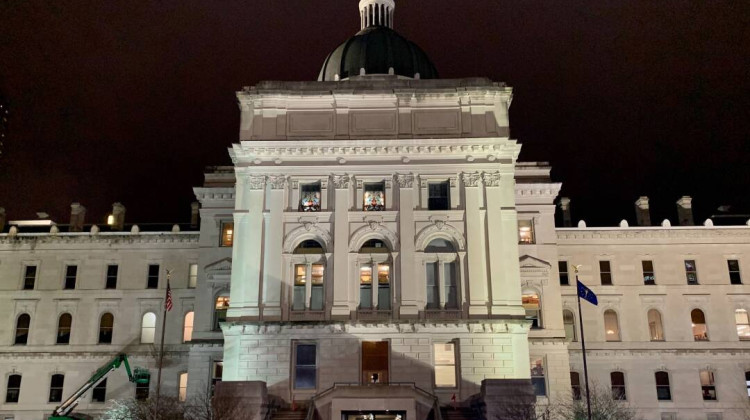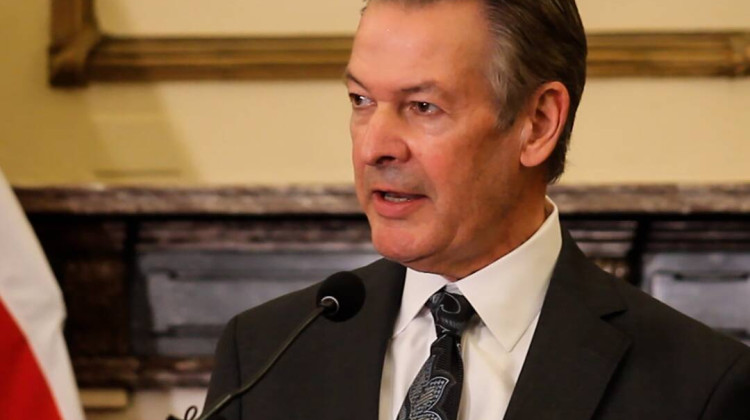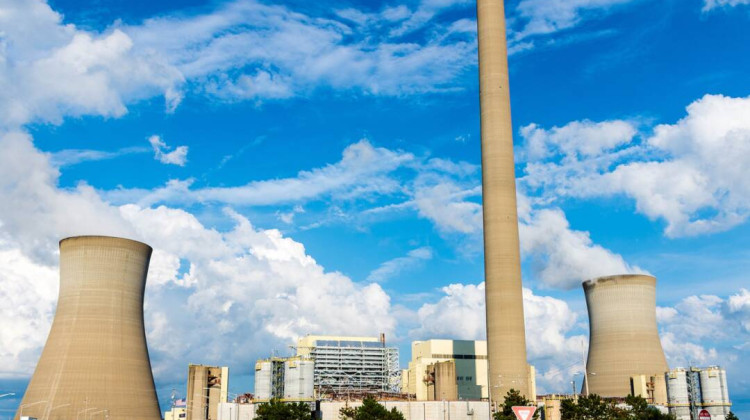
Co-chair of the task force Rep. Ed Soliday (R- Valparaiso) said relying on too much renewable energy could leave Indiana without enough power to meet its needs.
FILE PHOTO: Brock Turner/WTIUA task force charged with developing a statewide energy plan voted to pass its final recommendations to the Indiana legislature on Thursday. Its report suggests lawmakers determine how the Indiana Utility Regulatory Commission can ensure reliable electricity.
Rep. Ed Soliday (R- Valparaiso) is co-chair of the 21st Century Energy Policy Development Task Force. He said relying on too much renewable energy could leave Indiana without enough power to meet its needs. Soliday said while utilities must file long-term plans every three years, state utility regulators don’t approve them.
“Got to be a contract that backs up what you’re saying you’re going to do for the next three years," he said.
Jesse Kharbanda is the executive director of the Hoosier Environmental Council. He worries the report portrays a higher percentage of renewable energy as being less reliable.
“Could lead to legislation that slows the transition from coal to renewables plus storage," Kharbanda said.
The report also recommends the state develop standards to site and tax renewable projects like wind turbines and solar farms, strive for lower electricity rates, and create a transmission infrastructure plan.
READ MORE: Purdue Study Looks At County Attitudes Toward Wind Farms
But the task force didn’t look into how things like energy efficiency and rooftop solar panels could help the state meet its electricity needs. It also didn’t make suggestions on how the state can assist Indiana communities that rely on coal-fired power plants or what to do about stranded assets when coal plants retire early.
The report did recommend continuing the 21st Century Energy Policy Development Task Force for another two years to look at some of those topics.
In a statement, Denise Abdul-Rahman of the Indiana State Conference of the NAACP said the group appreciates that the task force will consider studying energy investment districts known as "green zones," but that many of the group's other suggestions weren't addressed.
"The real work is whether these recommendations will be moved into impactful, equitable and inclusive legislative policy," she said.
Soliday said lawmakers can still put forth bills that address any topics that the task force plans to study further.
The latest draft from the energy task force. The final draft has not yet been posted.
CLARIFICATION: The original version of this story stated that Jesse Kharbanda worried the report would portray renewable energy as less reliable than other sources. To be more clear, he is actually worried that a higher percentage of renewable energy sources would be seen as less reliable.
Contact Rebecca at rthiele@iu.edu or follow her on Twitter at @beckythiele.
Indiana Environmental reporting is supported by the Environmental Resilience Institute, an Indiana University Grand Challenge project developing Indiana-specific projections and informed responses to problems of environmental change.
 DONATE
DONATE








 Support WFYI. We can't do it without you.
Support WFYI. We can't do it without you.